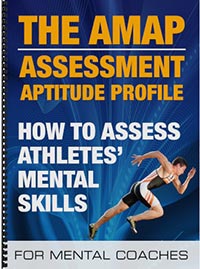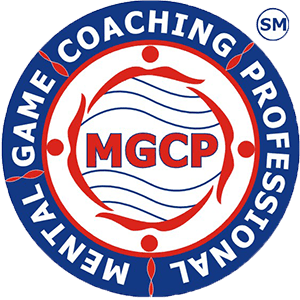
How to Introduce Mental Training to Athletes
Do sports parents contact you asking how to introduce mental training to their athletes?
Parents can recognize that their athletes are under performing due to anxiety, perfectionism, or lack of focus—before their athletes notice it.
And parents see the need when their athletes perform much better in practice than competition…
But parents are unsure how to introduce mental training to athletes.
They worry that their athletes might not understand mental training and how it can help.
They also worry athletes will reject it for different reasons. So parents often ask us how to get their athletes involved in mental training if they don’t know anything about it.
Athletes might think if they have to work with a mental game expert that something might be wrong with them.
Based on our survey with sports parents, we know that nearly 45% of families do not embrace mental training because they simply don’t understand what it is or how it can help their athletes.
How can you help athletes embrace mental training?
- Educate. Athletes have to understand that mental training is not for the weak or problem athlete. It’s for athletes that want to have more stable confidence and improve their consistency.
- Discuss the Benefits. Take a growth approach to mental training for athletes. Mental coaching does not have to be about fixing problems but rather striving for peak performance, better focus, stable confidence, more composure, and so on.
- Use Role Models. Tell athletes about other athletes who use mental training as a regular part of their training programs, such as Mia Hamm, Jeff Burton, and Andy Murray. Can top athletes be wrong about using mental training?
- Mental Edge. Discuss with your athletes that they may miss out on a good way to get the advantage over other athletes. And if their competitors are using a mental coach, they may be at a disadvantage when physical skills or talent is equal.
- Dispel Myths. Many athletes still hold onto myths about sports psychology coaching, such as it’s only for problem athletes, other athletes might use it against them if they find out, or they must be head cases if they have to engage in mental game coaching.
- Life Skills. Parents especially like to hear us talk about the many benefits of mental skill applied to other areas of their athletes’ live. Through mental training for sports, athletes can learn life skills, such as teamwork, composure, proactive confidence, goals setting, and much more.
- Provide Samples. We suggest to our MGCPs to offer a short 15-minute sample session for athletes to help them understand mental training. If you can show athletes the value of working on their mental approach, they are more likely to embrace mental training. Give your prospective athletes one valuable tip.
- Identification. Help your athletes identify with mental game challenges they might experience. For example, they might under perform in competition, get easily frustrated, worry too much about what others think, feel anxious, or tank.
The key to helping athletes embrace mental training is to educate them on the benefits, provide samples, and help them identify with how it can help them overcome a specific challenge.
I don’t think you can force athletes to do mental training, unless you’re also a team coach and you use practice time to teach mental skills.
The best option is to educate your target population of athletes about the benefits and wait for them to arrive at a “teachable moment” when they understand it and are fully ready to embrace mental training.
Please contact us to complete an application or learn more about the MGCP program.
If you have not completed the application, you can apply by either:
- Filling out the application online: Apply to Be an MGCP
- Downloading the application and submitting it, as soon as possible: Download the MGCP Application
Apply to Be a Mental Coach Today!
Related Mental Coaching Articles
- 5 Reasons Athletes Don’t Do Mental Training
- Assessing Mental Training Effectiveness
- 4 Tips to Help Athletes Stay Committed to Mental Training
Mental Coach Assessment System

If you help athletes improve their mental game and want to be more effective with helping them build mental toughness, but don’t have a proven system for identifying and assessing your athletes’ mental game, I can help you…
I view this assessment as a way to “interview” athletes before they come in for coaching–and to improve organization and speed up the coaching process. Today, I call it the Athlete’s Mental Aptitude Profile or AMAP for short. Now you too can learn how to use the AMAP Assessment system with your athletes…
The AMAP System teaches you how to easily identify your athletes’ mental game challenges, what mental game issues to look for when reading the AMAP, and how to do a summary of the AMAP. In addition, you’ll also get follow up questions to ask and how learn about how to drill down on relevant topics.
